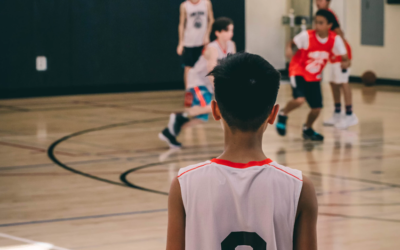Parents do their best to shield their children from the harsh realities of the world. But as much of an effort as they put in, parents can’t always protect their children from experiencing the pain of loss. Whether it’s the loss of a beloved pet, a childhood friend, or the loss of a family member, young children are often unequipped to deal with the feelings of grief and sadness.
Here are some ways you can help your child cope with loss:
Share What They Can Handle
Children have very big imaginations. They can often imagine a scenario that is far scarier than the current reality. While you may think speaking openly to children about a pet or loved one’s illness and impending death will cause anxiety, very often not speaking with them will cause them even more. Just be sure to share facts and information that is age-appropriate. For instance, a 12-year-old may understand the concept of hospice care while a 5-year-old may not. With younger children, share the simple essentials of death and dying.
Use Children’s Books
It can be difficult finding just the right words to explain death and dying to a young child. At these times, children’s books about illness, dying and bereavement can be a tremendous help and can guide you in having developmentally appropriate conversations with young people.
Encourage Their Honest Feelings
Loss can cause people of all ages to completely shut down emotionally. Emotional numbness is a form of denial. While it’s okay for a child to take some space after the initial loss, you will need to help them feel their feelings about it. Unexpressed emotions can cause mental and physical issues in the future.
Accept Their Honest Feelings
Like adults, kids may go through a gamut of emotions from anger to sadness, guilt to shame. It’s natural and okay for your child to feel any emotion they may have. Let them know this and support them at every step of their grieving process.
Seek Help
Your child may benefit from speaking with a professional therapist who can offer tools and coping strategies. You’ll want to look for someone who’s not only qualified but who both you and your child will feel comfortable working with.
If you’re interested in exploring counseling options, please be in touch with us. We’d be more than happy to discuss how we may be able to help.

The Mental Health Dangers of an Over-Stuffed School Schedule
For their children to succeed as adults, many parents think they’ve got to be involved in numerous extracurricular activities. Perhaps we believe this abundance of activities will foster a sense of pride and accomplishment. But is this excessive involvement in...
Parenting An Angry Teen
Raising a teenager can be one of the most challenging experiences a parent will go through. Teenagers are in an awkward stage, dealing with hormonal changes that are out of their control and a developing brain. They’re awakening to new realizations about themselves...
How to Help Your Child Transition into a 2-Home Scenario After Divorce
Going through a divorce can be a tumultuous time for any adult, and for children it can feel like their world is falling apart. It can be confusing for children to have two homes, particularly in the early stages of divorce. But there are ways to bring positivity and...
Quick! Get Your "Top Tips For Getting the Most Out of Counseling" Cheatsheet!
Like some of what you've seen and want to see more? Sign up for our Mailing List for a free cheat sheet on making the most out of counseling. Our list members also gain access to exclusive specials and announcements, as well as the latest from our Counseling Blog!




